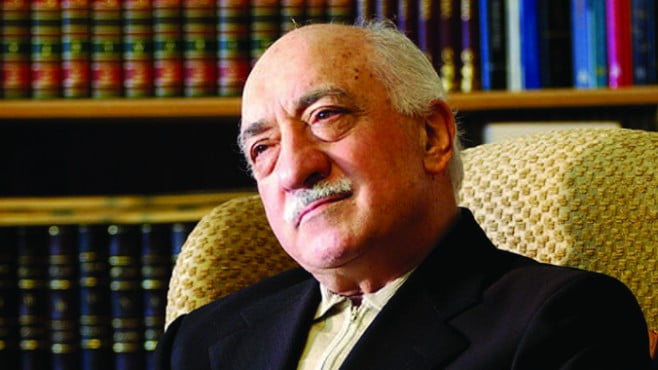Princeton professor accuses Gulen of orchestrating Turkish coup, Harvard professor disagrees

Date posted: October 7, 2016
Samuel Oh
Associate Professor of Near Eastern Studies Michael Reynolds GS ’03 published an article on the Foreign Policy Research Institute on Sept.26 that accused supporters of Islamic preacher Fethullah Gülen of allegedly orchestrating the attempted Turkish coup in Jul.
Reynolds further called for Gülen’s expulsion from the United States.
Edward Owen, professor of Middle East history at Harvard, said that he did not believe in Reynold’s certainty of Gülen’s guilt. Owen added that when a person writes “alarmist pieces” like Reynolds’ and “say that America is at fault,” the main audience for the pieces is Washington.
“It is a way of calling attention to yourself, and I imagine that Professor Reynolds would like his name registered by the people in Washington as somebody to go to, to employ, when there is a change in administration in Washington,” Owen said.
Reynold’s essay outlined the existence of a struggle between pro-government forces led by Turkish President Recep Tayyip Erdoğan and underground, “insidious” forces purportedly led by exiled Gülen.
Gülen is an Islamic cleric currently residing in Saylorsburg, Pennsylvania. 100 schools and universities influenced by his teachings are established in multiple counties including Azerbaijan, Kazakhstan, and Kyrgyzstan, according to RadioFreeEurope.
Gülen did not respond to requests for comment.
According to Reynolds’ article, Gülen has allegedly been trying to bring religious fervor back to the government in Turkey and raise a Golden Generation from the corrupted masses of secularism.
Reynolds said in an interview on Tuesday that Gülen’s network was directly involved in the attempt to overthrow Turkey’s government by means of infiltration and internal sabotage.
“He [Gülen] looks to be tied up with it [the coup],” Reynolds said in the interview. “The [Gulenists’] objective, clearly, is to destroy the government [of Turkey],” he explained.
Reynolds added that the United States is responsible for inadvertently destabilizing Turkey because of its reluctance to expel Gülen.
“Gülen is well known by CIA officials, especially former CIA and ambassadors, who vetted him to remain in the US, even though the [Department of Homeland Security] categorically rejected his application,” Reynolds said.
Reynolds refused to accuse the United States of supporting Gülen’s accused actions in Turkey.
“Still, it looks odd,” Reynolds said. “It’s one of the questions I’m raising. Why is he surrounded by controversy but yet is allowed into the US by the influence of a few US officials?”
The Gülenists have been allegedly attempting for ages to infiltrate Turkey’s governmental apparatus — including its military — and slowly lower the Turkish people’s trust in the government, according to Reynolds.
As a video released on the preacher’s website by Gülen’s followers — self-declared “Gülenists” — shows, Gülen himself wishes to bring Turkey back to the glory days of the late Ottoman Empire.
“We [Turks] have left nothing but rot… We saved our material [possessions], we saved our bodies, but our hearts remained in someone else’s hand,” Gülen said in the video.
“There is something wrong with using the ‘Golden Generation’ to take control of the state,” Reynolds said. “And he [Gülen] has been combative in trying to do that.”
Reynolds described an incident in 1986, when Gülen’s followers were attempting to infiltrate Turkish military academies.
“Gülenists framed people in Turkey, got them imprisoned, lowered people’s faith in police forces… Across the board, Erdoğan [the current President of Turkey] and the opposition are in agreement, that Fethullah Gülen and his people are a major problem in Turkish politics,” he explained.
According to Reynolds, the most favorable way to end the Gülenist movement, which the Turkish government named a terror organization, is to expel Gülen from the United States.
“The American people owe nothing to Gülen,” Reynolds said.
He added that he doubted any controversy over Gülen’s guilt in subverting the Turkish republic.
Reynold’s thesis has nevertheless been met with criticism and suspicion.
Edward Owen, professor of Middle East history at Harvard, said that he did not believe in Reynold’s certainty of Gülen’s guilt.
“I think it’s very sensational. I think it puts in a line of conspiracy theory. It is possible that there was a coup enacted by people using or following the Gülenist network but might have nothing to do with Gülen. It doesn’t mean Gülen approved it. They could have used the Gülenist network to get people on board more quickly. That seems to me the most likely thing,” Owen explained.
Owen further noted that Gülen most likely was unfairly painted in a hostile, scheming light by Reynolds.
“It depends on how you interpret Gülen himself, whether he is the Machiavellian, plotting kind of gentleman who fell out with Erdoğan as the article describes. It doesn’t seem to me to be the Gülen I know,” Owen said. “The sense of the man himself – whose aim is to make Turks better Muslims, as well as how he operates lie contrary to the actions of the coup perpetrators.”
Owen said anti-Erdoğan forces used the extensive Gülenist network to organize but had no reasonable ties to Gülen himself; Reynolds’ article only draws false alarms and attention.
“I think there were anti-Erdoğan forces who used the Gülenist network. That Gülen locating himself on the Eastern corridor and being the center of all this, that sounds to me very fanciful,” Owen noted.
Owen added that when a person writes “alarmist pieces” like Reynolds’ and “say that America is at fault,” the main audience for the pieces is Washington.
“It is a way of calling attention to yourself, and I imagine that Professor Reynolds would like his name registered by the people in Washington as somebody to go to, to employ, when there is a change in administration in Washington,” Owen said.
Source: The Daily Princetonian , October 5, 2016
Tags: Defamation of Hizmet | Fethullah Gulen | Military coups in Turkey | North America | USA |
























